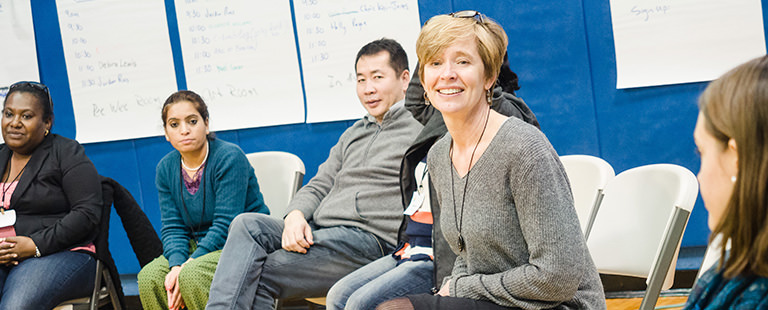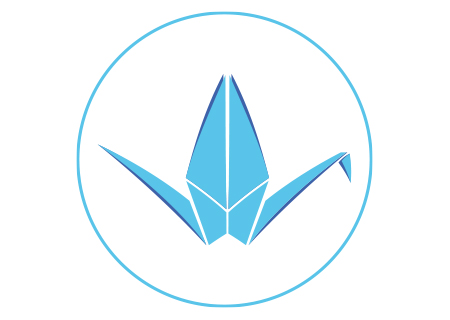CTA helps create communities that are socially just, ecologically sound, and work for everyone.
The Center for Transformative Action (CTA) helps create communities that are socially just, ecologically sound and work for everyone. We do this by providing educational programs and fiscal sponsorship services to innovative social change initiatives. These projects work to transform the structures as well as the habits of mind that produce inequities in our communities, country and the world. Through their innovative methods, as well as their successes and challenges, they show us what is possible.
Our Vision: We envision change makers everywhere engaging and strengthening the power of the heart to remake the world.
Our Mission: We are an alliance of individuals and organizations inspired by principles of nonviolence and committed to bold action for justice, sustainability, and peace. CTA supports change makers with the tools to build thriving, inclusive communities that work for everyone. We serve our projects, the public, and Cornell University by offering educational programs and strategic organizational resources.
We know that to achieve an equitable, socially just, and ecologically sound society, we must work to dismantle the systems, structures and relationships of power that perpetuate racism, oppression, and exploitation.
We recognize that to develop effective solutions to intractable problems, we must build fierce alliances across difference, support the assets of places and people, and take the lead from those with lived experience who intimately understand the problems we seek to address.
We also believe that our ability to create communities that work for everyone rests on our capacity to listen to each other with curiosity. This means being willing to suspend our position for a moment to truly hear and understand what another is saying. Then, authentic dialogue can ensue and unforeseen possibilities emerge.
Thus, taking time to build relationships, to acknowledge the complexity of historical and current experiences, and to work toward trust are fundamental to creating an inclusive organization as well as a community that is actively dismantling systems and norms that perpetuate oppression and exclusion.
These practices are central to our mission and require continuous attention as well as intention. To this end, we commit to:
- educating ourselves about racial justice, racial violence, and white privilege;
- examining and undoing norms that can replicate exclusionary practices and power structures within our organization;
- resisting in our decision-making the competitive, urgent, individualistic, either/or, right/wrong scarcity mindset dominant in our culture; instead, cultivating collaborative, both/and, asset-based and abundance thinking, all of which takes time;
- supporting programs that center the leadership, insight, and experience of those they aim to serve;
- promoting policy and practices that increase the diversity of our staff and participants;
- fostering an inclusive and accessible workplace where everyone has the experience of being heard;
- engaging thoughtfully in antiracist actions that work to dismantle the structures, power relationships, and habits of mind that perpetuate inequitable outcomes within our organization, community, and society: and
- establishing accountability processes throughout our organization to hold ourselves to these commitments.
History and culture have produced social norms that structure how we work, socialize, engage, and even think. Layered within them are messages about what is good, right, worthy, and heroic—and what, or who, is not. While these messages may guide us to behave well, they also reinforce a fear of those unlike us. This fear and the anger that runs close on its heels shut down our natural impulse to empathize and connect—to act from the heart.
“Us vs. them” thinking, polarized positioning, and discord across differences such as race, class, ethnicity, religion, or political leanings result. Experiences of being threatened and wronged by the “other” can justify patterns of exclusion, injustice, and violence that tear at the fabric of our communities—and our very being.
Transformative Action calls for courage to break the silence that surrounds these injustices; patience and compassion to build an inclusive movement for systemic change; imagination to stay free from “us vs. them” strategies; and inspiration to envision new solutions to common challenges.
When we animate the power of our hearts in these ways, bold actions result:
- We find common purpose with others
- Take pressing social problems in hand
- Live our lives out loud
- Listen deeply, act courageously
- Transform ourselves and each other
- And ultimately co-create thriving, inclusive communities that work for everyone.
At CTA, our projects and initiatives engage and strengthen the power of the heart, and our services support bold change makers. Because Ithaca, Cornell University, and New York exist in a far-reaching network, the impact of those empowered through our programs ripples across the country and the world, transforming lives and communities. This is our vision for change.
The Center for Transformative Action is an independent 501(c)3 affiliated with Cornell University. As an affiliate, our center plays a unique role by offering courses and programs to Cornell University and serving as an incubator for innovative nonprofit social ventures on campus, in our community, in New York State, and across the country.
CTA began in 1971 as the Center for Religion, Ethics, and Social Policy, created to support the social justice initiatives that had grown out of Cornell United Religious Work in the 1960s. In 2006, we refocused our mission to address an increasingly polarized global society, bringing transformative action to the forefront of our work and adopting our current name to reflect this vision. In 2011, we expanded our fiscal sponsorship offerings to include projects across New York State, and in 2026, we began accepting projects headquartered anywhere in the United States. Originally affiliated with Cornell’s Division of Student and Campus Life, our affiliation moved to Entrepreneurship at Cornell in 2026 to reflect our role as an incubator of nonprofit social enterprises.
CTA’s board of directors is responsible for overseeing the activities of our entire organization, including all our projects. The board meets every month except for July.
Glen Dowell
Glen is a professor of management and the Senior Director of the MBA and MPS programs in the Cornell SC Johnson College of Business.
Susan Fleming, Secretary
Susan is an educator, researcher, and business consultant who focuses on women in leadership.
David Foote
David is the Communications Manager at the Cornell Cooperative Extension of Tompkins County.
Kellie Graves
Kellie is an Investment Banking Analyst at Morgan Stanley.
Laura Larson
Laura is the owner of the Odyssey Bookstore, an independent bookstore in Ithaca.
Denise Ramzy
Denise is a Senior Lecturer in Design Strategy in the Dyson School of Applied Economics at Management at Cornell University.
Samuel Straus
Sam is an associate at the Boston Consulting Group.
Michelle Thevenin, President
Michelle is the Director of Development at Family & Children’s Service of Ithaca.
To review our recent audited statements please download the following file.



